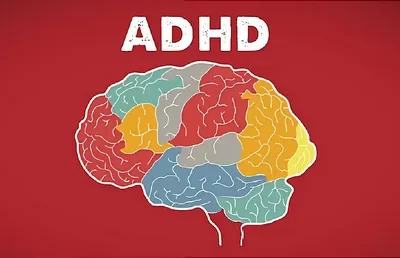
Passing healthy habits onto your children is not just about what they learn; it’s about what they embody as they grow. It’s a lifelong gift that lays the foundation for their well-being. As a parent or guardian, your actions and choices serve as a blueprint for their own habits. Encouraging healthy practices from an early age sets them on a path towards a balanced and fulfilling life.
Firstly, leading by example is pivotal. Children absorb behaviors by observing and imitating those around them. If they see you valuing nutritious meals, staying active, and prioritizing self-care, they’re more likely to adopt these habits themselves. Engage in physical activities together, prepare wholesome meals as a family, and emphasize the importance of a good night’s sleep. These actions imprint the significance of health in their minds.
Communication plays a crucial role. Explain the reasons behind healthy choices in a way that resonates with their understanding. Discuss the benefits of eating fruits and vegetables, staying hydrated, and the joy of being active. Create an open dialogue where they feel comfortable asking questions and expressing their thoughts about health-related matters. This fosters a sense of understanding and empowerment.
Establishing routines is essential. Consistency forms habits, so integrate healthy practices into your daily schedule. Set regular meal times, designate periods for physical activities, and ensure an adequate amount of sleep. Consistency reinforces the importance of these habits and makes them an integral part of their lifestyle.
Education is key. Teach your children about nutrition, explaining the value of various foods and their impact on the body. Involve them in grocery shopping and meal preparation, allowing them to learn hands-on about healthy food choices. Additionally, educate them about the benefits of exercise, both for physical health and mental well-being. Cultivating this knowledge empowers them to make informed decisions.
Limiting screen time is crucial in today’s digital age. Encourage outdoor activities, creative play, and interactions with peers instead of prolonged periods in front of screens. Set clear boundaries regarding screen time to strike a balance between technology and other activities that promote physical movement and social engagement.
Positive reinforcement is a powerful tool. Acknowledge and praise their efforts towards adopting healthy habits. Celebrate their accomplishments, whether it’s trying a new vegetable or achieving a personal best in a physical activity. Positivity reinforces their motivation and encourages them to continue making healthy choices.
Teaching resilience is equally important. Help your children understand that setbacks are part of the journey towards a healthier lifestyle. Encourage them to persevere and not get disheartened by occasional slip-ups. Emphasize the importance of resilience, self-forgiveness, and the ability to bounce back from challenges.
Lastly, create a supportive environment. Surround your children with positive influences, whether it’s through family, friends, or communities that prioritize health. Engage in activities that promote wellness as a family unit, creating a supportive network that reinforces healthy behaviors.
Healthy eating habits are crucial for teenagers as they fuel physical growth, cognitive development, and overall well-being. Firstly, a balanced diet comprising fruits, vegetables, whole grains, lean proteins, and healthy fats is vital. Encouraging teenagers to consume a variety of colorful fruits and veggies ensures a range of essential nutrients. It’s also important to limit processed foods, sugary snacks, and high-fat fast foods, as they can contribute to weight gain and health issues.
Another key aspect is regular meals and snacks to maintain steady energy levels. Skipping meals can lead to overeating later or feeling fatigued and irritable. Encouraging breakfast, for instance, can kickstart metabolism and improve concentration in school.
Additionally, promoting mindful eating is beneficial. Encourage teenagers to listen to their bodies, eat when hungry, and stop when full. Teaching them about portion control and the importance of moderation empowers them to make informed choices.
Involving teenagers in meal planning and preparation can foster a positive relationship with food. This includes teaching basic cooking skills and involving them in grocery shopping, allowing them to explore healthier food choices.
Lastly, hydration is often overlooked but essential. Encourage drinking water throughout the day to maintain proper bodily functions and overall health.
Instilling these habits early equips teenagers with the tools to make healthier choices and maintain a balanced lifestyle into adulthood.
In conclusion, passing on healthy habits to your children involves a multifaceted approach that combines leading by example, communication, routine, education, positive reinforcement, resilience, and a supportive environment. By instilling these habits early on, you equip your children with the tools they need to lead a healthy and fulfilling life. Remember, the impact of these efforts extends far beyond childhood, shaping their habits and well-being for years to come.











